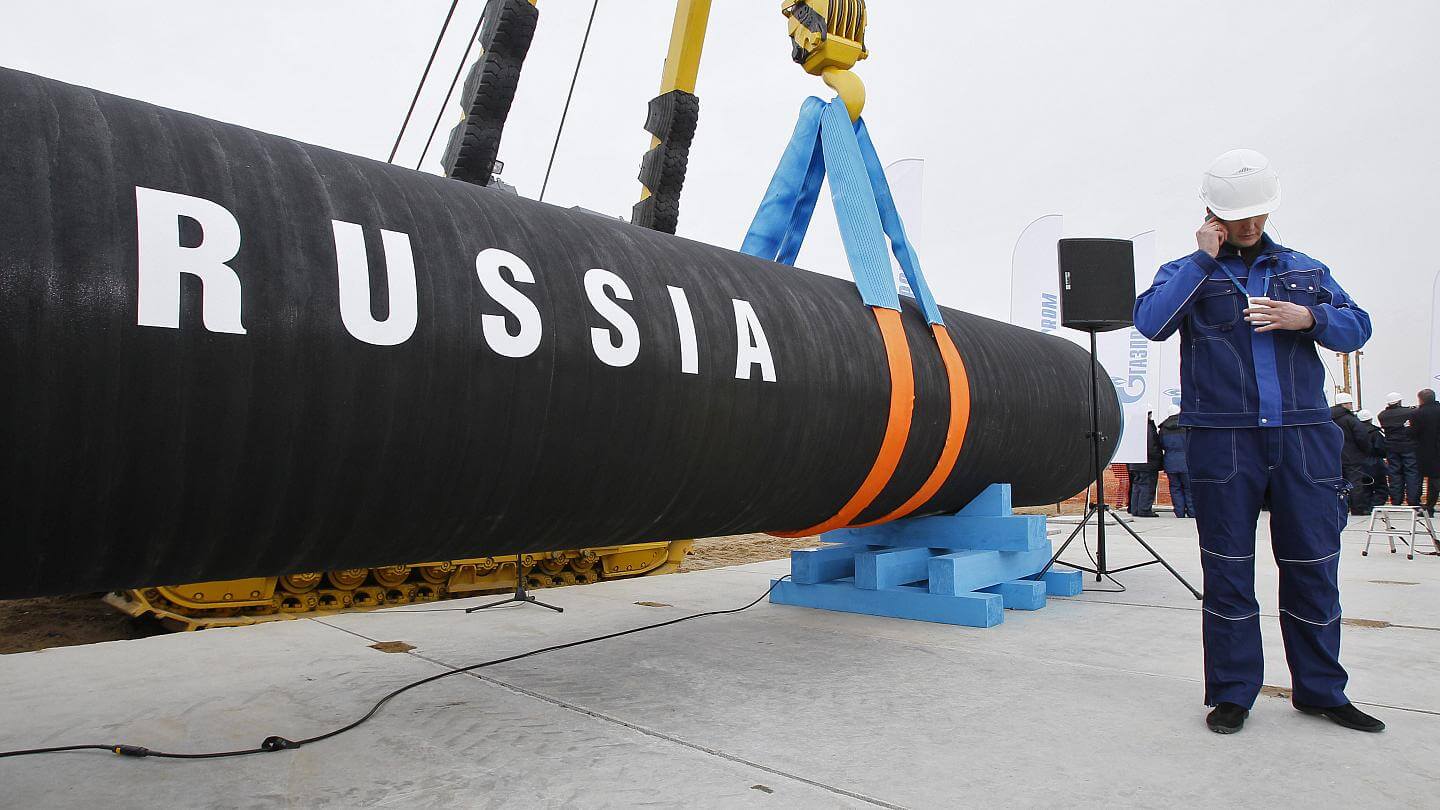On Wednesday, after Germany invoked a three-stage gas emergency plan, Russia backtracked on its demand for “unfriendly countries” to pay for Russian gas imports in rubles, with the Kremlin reassuring that this plan will not take effect immediately.
Last week, Russian President Vladimir Putin demanded that countries that have condemned or sanctioned Russia over its invasion of Ukraine must pay for gas supplies in rubles rather than dollars or euros. He gave Russia’s Central Bank one week to facilitate an initiative allowing buyers to acquire rubles from Russia.
To this end, the government, the Central Bank, state-owned energy company Gazprom are due to present proposals on Thursday. However, Kremlin spokesperson Dmitry Peskov has clarified that the switch to rubles will not start on March 31.
“As we discussed before, payments and delivery is a time-consuming process,” Peskov said, adding, “This does not mean that tomorrow’s delivery should be paid [in rubles]. From a technological point of view, this is a more prolonged process.”
Experts have said that rather than a retaliatory measure against Western sanctions, Putin’s announcement was designed to prevent the ruble from losing any more value, given that it has hit historic lows. In this respect, following the announcement last week, the ruble regained some value against the dollar, reaching its highest value since the Ukraine invasion began on February 24. The ruble once gain rallied by over 10% following the latest round of peace talks between the warring neighbours.
Putin’s move was also carefully engineered to protect Russia’s energy sector by ensuring that European powers do not follow through on threats to impose an oil embargo, preying on the fact that the bloc remains divided on whether or not to impose such a measure. In fact, his announcement caused wholesale gas prices to skyrocket by up to 30% in some parts of Europe, with the UK and the Netherlands being particularly hard-hit. It appears to have achieved both those objectives by causing the ruble to rally and generating uncertainty in the European market and among EU policymakers.
However, Russia has now backed down from its demand for ruble payments. Peskov’s reassurance that the ruble policy will not be implemented straight away came after German Vice-Chancellor and Minister for Economic Affairs and Climate Action Robert Habeck activated the first warning in the government’s three-stage gas emergency plan, which prescribes measures on how the country can conserve gas and secure supplies. Germany will also establish a crisis team under Habeck’s office to monitor the country’s gas supply and suggest measures to stabilise it.
Unabhängig zu werden von russischen Energieimporten verlangt eine große Gemeinschaftsanstrengung von Regierung, Unternehmen und den Menschen in unserem Land. Wirtschaftsminister #Habeck über die Maßnahmen der Bundesregierung und welchen Beitrag jeder & jede Einzelne leisten kann. pic.twitter.com/g6TVAITgel
— Bundesministerium für Wirtschaft und Klimaschutz (@BMWK) March 30, 2022
If things escalate and reach level three, the federal government will take over gas supply and prioritise distribution for hospitals, police, fire brigades, and households.
“There are currently no supply shortages. Nevertheless, we must increase precautionary measures in order to be prepared in the event of an escalation on the part of Russia,” Habeck said.
Germany's Economy Minister: "You are helping Germany, you are helping Ukraine when you reduce your use of gas or energy in general."pic.twitter.com/3qw1yw8In3
— Marcel Dirsus (@marceldirsus) March 30, 2022
Habeck also called for a reduction in gas consumption. “I would look to combine the triggering of the early level for gas with an appeal for help to companies and private consumers,” he said, adding, “You are helping Germany, you are helping Ukraine when you reduce your use of gas or energy in general.”
German Economy Minister Robert Habeck called on businesses and individuals to try and reduce their energy consumption as much as possible. This move is the first of three warning levels. Germany gas storage is currently filled to about only 25% of capacity. "by DW News" 🛢️ #OOTT pic.twitter.com/OXpRMbp0Qy
— ViVA POST (@VivaPost) March 31, 2022
Germany is heavily dependent on Moscow for gas and currently imports 40% of its energy requirements from Russia.
Apart from Germany’s emergency declaration, Russia’s decision to backtrack could also be due to the decision of the G7—Canada, France, Germany, Italy, Japan, the United Kingdom (UK), and the United States (US)—to reject Putin’s demand for gas payments to be made in rubles, with Habeck calling it a “breach of contract.”
Before the G7 rejected Moscow’s demand, Russian Deputy Chairman of the Federation Council Committee on Economic Policy Ivan Abramov had warned Europe of the consequences if they refused to comply with Putin’s demands. “If these countries refuse to buy gas for rubles, this will definitely lead to the termination of its supplies. We have a clear position,” Abramov said.
In fact, following the G7’s rejection of Russian demands, Russian gas flow via the Yamal-Europe pipeline fell to zero through Germany’s Mallnow point on the German-Polish border. Gas operator Gascade reported that eastbound gas flows into Poland from Germany stood at 1,451,155 kilowatt-hours per hour (kWh/h) by 1 pm local time, after which it fell to zero. However, on Wednesday, Russia resumed the westward flows on the Yamal-Europe gas pipeline.

